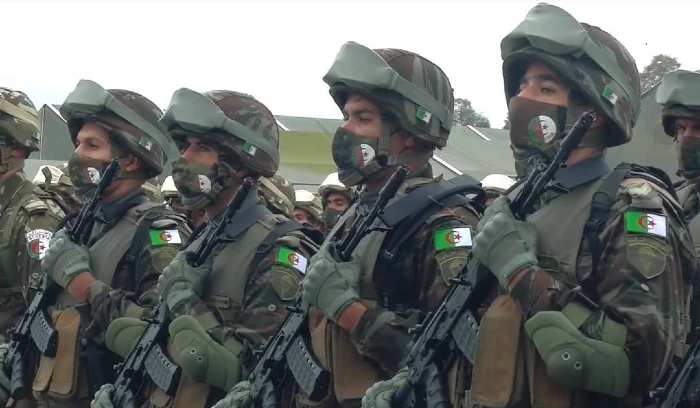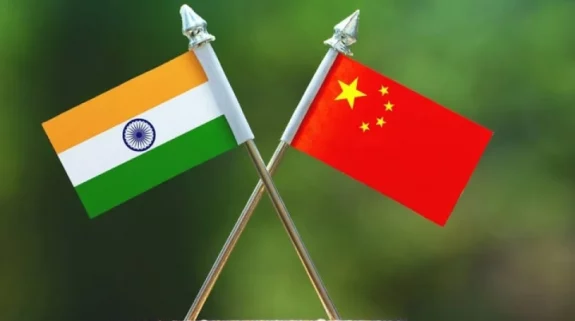Russia and Algeria are elevating their partnership to a new level by conducting the first joint Russian-Algerian exercise in North Ossetia, on the northern slopes of the Greater Caucasus range of Eastern Europe.
Being held at the Tarsky training ground of Russia's Southern Military District (SMD) from October 3 to 12, about 200 servicemen from both sides are taking part in the exercise which has further strengthened the military cooperation between the countries.
The SMD said today that the servicemen from the Algerian National People's Army have for the first time passed the standards of the Armed Forces of the Russian Federation for engineering and medical training, radiation, chemical and biological protection.
The exercise involves 40 units of military and special equipment, including BMP-3 infantry fighting vehicles, armoured personnel carriers, off-road vehicles, 120-mm transportable mortars 'Sani', unmanned aerial vehicles, assault and army aviation of the SMD.
Algeria remains Russia's largest recipient of major arms in the African continent and the third overall, having received 15 per cent of Moscow's total global arms exports between 2016-20.
According to the Stockholm International Peace Research Institute (SIPRI), an independent international institute dedicated to research into conflict, armaments, arms control and disarmament, Algeria's arms imports were 64 per cent higher in 2016–20 than in 2011–15, making it the sixth largest arms importer in the world.
"Russia remained the largest arms supplier to Algeria in 2016–20. Russian arms deliveries included 16 combat aircraft, 42 combat helicopters and 2 submarines. Other notable deliveries to Algeria included 2 frigates from Germany and 2 frigates from China," SIPRI's 2020 report on 'Trends in International Arms Transfers' noted.
It is not just the Russia-Algeria strategic defence ties which have witnessed a significant upswing in the last few years. As conflicts rose in Syria, Libya and the Western Sahara settlement, the political dialogue and multifaceted cooperation between the two countries also stepped up gradually.
Russian Foreign Minister Sergey Lavrov had last year, following talks with his Algerian counterpart Sabri Boukadoum in Moscow, said that the positions held by both the countries on important issues related to resolving international problems overlap.
"Our countries are in favour of resolving crises and conflicts exclusively through peaceful, political and diplomatic means. If we want to bring a sustainable solution to the many problems in the region (the Middle East and North Africa), all external players must encourage the conflicting parties to start a dialogue and reach agreements based on compromises and a balance of interests," Lavrov had said.

Algerian Foreign Minister Sabri Boukadoum with Russian Foreign Minister Sergey Lavrov in Moscow a few months ago (Image courtesy: Ministry of Foreign Affairs, Russia)
"We can resolve the crisis in Syria and achieve the Middle Eastern settlement (the Palestinian-Israeli conflict), settle the situation in Mali and the Sahara-Sahel region in general and, of course, settle the Libyan conflict, which we covered extensively today, only from these positions," the Russian Foreign Minister had maintained.
A leading provider of the world's precious oil and gas resources, Algeria's economy is driven by hydrocarbons production which account for 93 percent of export revenues and are the largest source of government income.
Russian and Algerian companies have been cooperating in the mining industry for decades and continue cooperation in terms of hydrocarbon production and power generation.
Russian President Vladimir Putin has also acknowledged that the African nation remains one of the leading trade and economic partners of Russia both in the continent and in the Arab world.
"Both countries are major energy producers and have shared interests in the stability of global energy markets. Algeria is diversifying its diplomatic partnerships and Russia is expanding its outreach in Africa. Therefore, it is but natural for Algeria and Russia to further deepen their strategic partnership," says Sankalp Gurjar, a Research Fellow with New Delhi's Indian Council of World Affairs.
Putin's resolve to increase Russian-African cooperation in all dimensions – politics, security, economy, science, technology, cultural and humanitarian spheres – was quite visible during the first Russia-Africa Summit held in Sochi in October 2019.
The event saw participation of 45 countries from the African continent as well as seven regional organisations, including the African Union and the African Export-Import Bank.
"We have an important competitive advantage. Unlike others, our country has never oppressed anyone. Moreover, the USSR played a decisive role in the African countries gaining their independence, the formation of their statehood, industry, education, health care, etc," Russian Ambassador to Algeria Igor Belyaev told L'Expression newspaper, last year.
"President Vladimir Putin has identified the development and strengthening of mutually beneficial ties with African countries and their integration associations as one of Russia's foreign policy priorities," he added.
While renewable energy sources, agriculture, high-tech mining and processing of minerals, geological exploration, etc, continues to invite interest from both sides, it is going to be the steady progress made by the Kremlin in forming new strategic partnerships in the continent which will be of massive relevance in the coming times.
Also Read: Russia and Iran bolster partnership amid fast-changing geopolitical situation




















